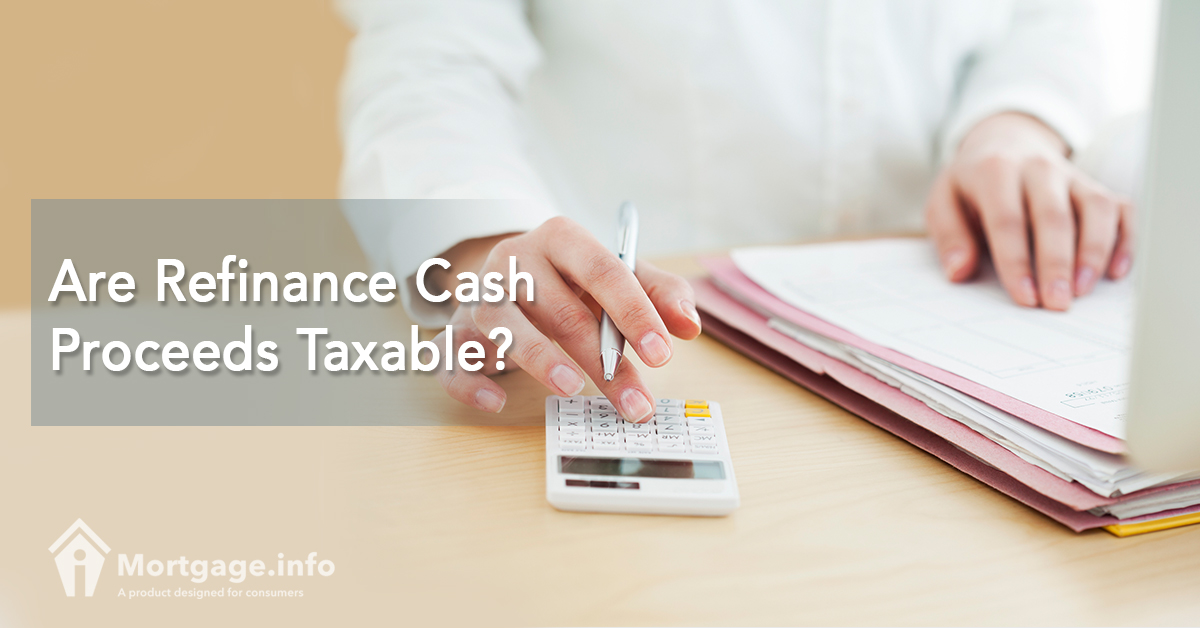Today it seems like every dollar you receive is taxable. Inheritance, employment income, gambling earnings and so many other types of income require that you pay taxes. Refinance cash proceeds, on the other hand, do not. You can take the equity out of your home with a second mortgage, home equity loan or a cash-out first mortgage refinance and you will not have to pay tax on the proceeds.
The Equity is not a Gain
It seems kind of strange that a person with a $500,000 home and $300,000 in equity would not have to pay taxes on any proceeds he takes out of the $300,000 equity. If he took out $100,000 out, he would not pay taxes. The reason is simple – the equity is not a gain. You simply swap your assets around, but your net worth never changes. Here is how:
Let’s use the $500,000 valued home from above. If you left the equity alone, you have $500,000 in assets and $200,000 in debts. Your net worth equals $300,000. Now let’s pretend you took out the $100,000 in a cash-out refinance. Now you have $600,000 in assets but you have $300,000 in debts as well. Your net worth still equals $300,000. You never gain any more money, the money just changes hands.
It is Another Debt
The IRS considers a cash-out refinance just another debt. Even though you receive cash in your hand at the closing, it is not really a gain for you. The refinance cash proceeds simply put you further into debt. You have a larger loan than you had before or two loans if you took out a second mortgage. You have to pay these debts back, so the IRS does not consider the money you brought in to be income.
How you Use the Refinance Cash Proceeds Matters
There is one area where how you use the refinance cash proceeds matters in terms of your taxes, though. Generally, you can deduct mortgage interest on your taxes. However, when you take a cash-out refinance or home equity loan, there are different results. If the money you took out in excess of your existing loan amount is not for home improvements, the entire amount might not be tax deductible. Any portion of the cash that you do not use to improve your home is subject to the following rules:
- You can consider the interest on the first $100,000 you took out above and beyond your current mortgage amount that you do not use to improve your home as mortgage debt. This means you can deduct the interest on that portion of the loan.
- Any amount that exceeds the $100,000 limit cannot get deducted on your taxes.
If you are not married or you file married filing separately, the total allowance decreases to just $50,000.
Uses for Cash-Out Refinances
There are many reasons you might use a cash-out refinance. The most common reasons include making changes to the home; paying for a college education and paying off debt. However, there are hundreds of reasons borrowers apply for this type of loan. According to Fannie Mae, eligible transactions must fall into one of the following categories:
- Paying off a first mortgage in exchange for a lower rate or different term
- Obtaining money for closing costs for a new loan, if it is beneficial
- Help in paying off delinquent real estate taxes (a new escrow account will be set up for you)
- Paying off any second liens on the home
- Paying off existing debt
- Making home improvements
- Obtaining money for large ticket items, such as college, weddings, etc.
In order to qualify, you must own the home for at least 6 months before applying for a cash-out refinance. In addition, you cannot use the funds to pay off a land contract on which you have an existing installment agreement. Last, but not least, if the home was on the market within the last six months, the maximum amount you can take out equals 70% of the value of the home, plus you have to prove that the home is no longer on the market.
Should you Consider Refinance Cash Proceeds?
Many people wonder whether refinance cash proceeds are worth the hassle or if they should obtain the money they need in some other way. The bottom line is that it depends on your exact situation. Avoiding additional taxation, however, is a huge benefit that many borrowers could benefit from. If you obtained money in any other way, aside from another type of loan, you would more than likely pay taxes on the proceeds. The money you receive from your mortgage, however, will not get taxed and could save you money on your tax liabilities based on the amount of interest you pay.
You should always talk to your tax professional before making any financial decisions including those that pertain to your home. He knows your exact situation and how it will affect you. In general, though, cash-out refinances do not hurt an individual’s tax liability, no matter how much they take out of their home.

